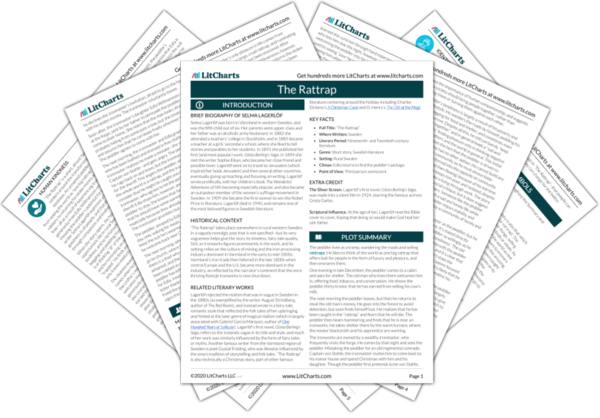The peddler’s note shows that Edla has helped him recognize the limitations of his rattrap vision of the world. While life can be harsh and unforgiving, the rattrap mentality does not take true kindness into account, and doesn’t allow for the latent potential for goodness within all people. Notably, the peddler does more than just return the stolen money—he also tries to be “nice” to Edla in return, and so leaves her the only the thing he has to offer: a Christmas present of a rattrap. This shows the peddler doing more than just making amends for his wrongdoing, but also acting kind and generous in his own way, having had these virtues awakened within himself. Finally, the fact that the peddler describes himself as having been “raised to captain” and actually signs the letter as “Captain von Stahle” means that he has assumed a new identity as another aspect of his transformation. He is not really Captain von Stahle, but he can be someone who conducts himself like a man whom others could be kind to, and who can be kind to others in return. It is this act of kindness that gives him a real identity, as he symbolically joins Edla in the story’s short list of named characters.
